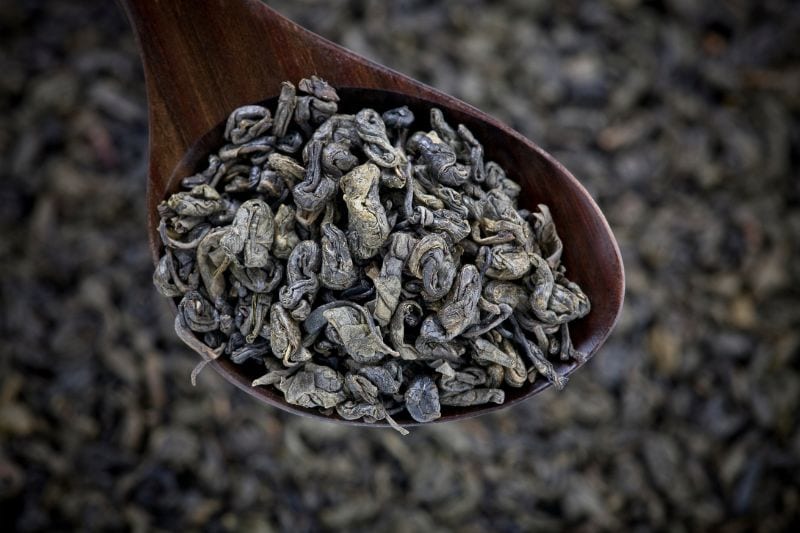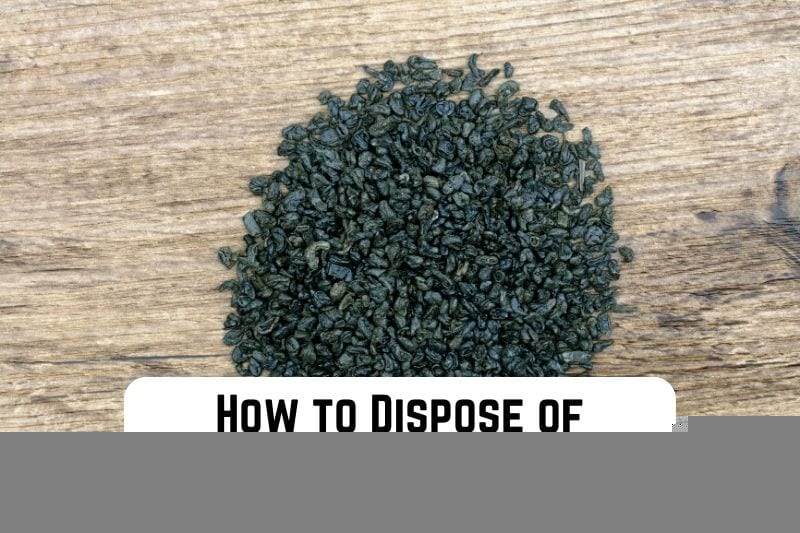Do you have some gunpowder you want to get rid of but don’t know the proper way to dispose of it? If yes, this article has you covered!
Gunpowder isn’t like the regular waste you produce in your home. It belongs to the category of hazardous waste, so you just can’t wrap it in paper and toss it in your trash bin to be hauled together with other waste.
Instead, you have to be cautious with the method you use to get rid of it, as a slight mistake can prove detrimental.
So, what’s the proper way of disposing of your gunpowder?
Well, that’s what our coverage entails. Here, we’ll explore all the ins and outs of gunpowder, ranging from what it actually is to types and proper disposal methods to use. Of course, there’s so much lined up for your consumption today, so keep following closely.
Read: Are Cruise Ships Bad for the Environment?
Understanding Gunpowder and Why Proper Disposal is Necessary
Gunpowder. What comes first into your mind when you hear this term? Explosions, fireworks, or maybe even guns? Well, all these are just but a few uses of gunpowder.
But what exactly is gunpowder?
Gunpowder is a mixture of sulfur, charcoal, and potassium nitrate (sometimes known as saltpeter), but it can also contain other elements depending on the type.
It’s highly flammable and can also be explosive (again, depending on the type), hence its use in various applications like firearms, fireworks, and industrial processes.
Gunpowder can be harmful to human health, especially when inhaled or after it seeps into the soil, and this makes it necessary to handle and dispose of it appropriately.
So, how do you correctly dispose of it?
Well, that depends on the type of gunpowder. So, before we delve into disposal methods, let’s first look at the different types of gunpowder.
3 Common Types of Gunpowder and How Long Each Lasts
There are three main types of gunpowder: black powder, smokeless powder, and flash powder.
1. Black Gunpowder
If you’re like most gunpowder enthusiasts, chances are that you want to get rid of black gunpowder. That’s because it’s the most common type of the three, and it has a relatively short shelf life of only two years.
Black gunpowder is made from a combination of three main ingredients: sulfur, saltpeter, and charcoal, in the proportions of 10%, 75%, and 15%, respectively.
In terms of combustion materials, black powder mainly uses solid particles, making it more prone to accidental detonation. Solid materials account for 56%, gaseous ones 43%, and water 1%.
This gunpowder is most commonly used in muskets and muzzleloaders but can also be found in other weapons. Due to its shorter shelf life and increased risk of explosion compared to other types, it’s recommended to dispose of black powder sooner rather than later.
2. Smokeless Gunpowder
Smokeless gunpowder is the next step up from black powder in terms of longevity. It’s made from nitrocellulose, nitroglycerin, and other additives in varying proportions depending on the specific type.
Unlike black powder, smokeless gunpowder can last up to 10 years when stored properly. It also has a lower risk of accidental detonation, and that’s because it uses gaseous combustion materials instead of solid ones.
In addition, just as the name suggests, smokeless gunpowder doesn’t produce smoke when used, and so it’s the go-to propellant for modern firearms that produce less smoke when fired.
It’s important to note that smokeless gunpowder should never be mixed with black powder as it can lead to dangerous results.
Magnum Gunpowder
Last but not least, we have magnum gunpowder. It’s a type of smokeless gunpowder, although it’s commonly preferred for use in most powerful weapons to give them outstanding power and velocity.
The shelf-life of this gunpowder can stretch to 25 years and beyond, although that majorly depends on how you store it.
Ideally, any gunpowder should be kept in a cool and dry place, preferably in places whose temperature conditions doesn’t extend beyond 70°F (21°C). Of course, it also has to be away from direct sunlight and heat, as either of the two can attract accidents.

How to Safely Dispose of Gunpowder?
You now know what types of gunpowder are out there. So, what disposal methods can you use?
Well, while some of the disposal methods cut across the two types of gunpowder (because magnum is a type of smokeless gunpowder, remember), some methods only apply to black gunpowder and not smokeless type and vice-versa.
So, let’s begin by examining general disposal methods for any type of gunpowder before narrowing it down to specific types.
5 General Disposal Methods for Any Gunpowder
Whether you’re using black powder or smokeless gunpowder, you can use either of these disposal methods:
1. Take It Local Police Department
Are you wondering where to take your black gunpowder? Perhaps you have the smokeless type and don’t know the proper way to get rid of it without endangering your life and the environment.
Well, one proper way to get it off your hands is to consider taking it to your local police station. As law enforcement agencies handle explosives frequently, they always know what to do with excess gunpowder.
They can use it for their training purposes or dispose of it any other way, depending on their preferred disposal method.
2. Sell It To Gun Enthusiasts
If any gun enthusiasts among your neighbors or friends have a thing for collecting guns and other firearms-related items, you can consider selling to them.
Remember that what doesn’t work for you could be the perfect item for another person. So, why not get rid of your excess gunpowder while making a little extra cash at the same time?
3. Use Local Gun Dealers For Disposal
You can also use local gun dealers as a disposal method for your excess gunpowder.
Similar to law enforcement agencies, these dealers have proper training on not just guns but also gunpowder, so they’re in a better position to help you get rid of your unwanted gunpowder.
But before you take it to them, reach them out in a call. They may want to know the type and amount you want to dispose of. If you’re lucky enough, this may all be done for free, otherwise, you may have to pay a small amount of fee.
4. Leverage Online Platforms
The Internet has undoubtedly made things easier, including the disposal of gunpowder. You can leverage social media or e-commerce websites to find potential buyers for your black or smokeless powder.
There are many active communities of gun enthusiasts on these platforms who may be interested in buying your excess gunpowder. Just follow all necessary safety precautions when shipping it to the buyer.
5. Donation
How about you donate your excess gunpowder to persons who need it? It won’t just help you get rid of it, but it will also help bring a sense of satisfaction and happiness, knowing that your unwanted gunpowder is being put to good use.
You can donate it to organizations or individuals who specifically need gunpowder for things like historical reenactments, educational purposes, or even training purposes. It’s a great way to declutter your space and contribute to a worthy cause.
Specific Disposal Methods for Different Types of Gunpowder
While the general disposal methods apply to all types of gunpowder, some specific ways of disposal are specific to particular gunpowder types, and that’s because the different types have different chemical compositions and properties.
How to Dispose of Black Powder?
On top of using the above methods, you can dispose of black powder by mixing it with damp dirt. This could be in a container or your backyard, and the dirt could be anything from sand to clay.
Potassium nitrate has high hygroscopicity, meaning that it readily absorbs water from its surroundings, making it easier to neutralize the black powder.
So, by using damp dirt, you’re reacting the potassium nitrate with the moisture in the dirt, eventually making the entire gunpowder ineffective.
How to Dispose of Smokeless Powder?
Smokeless powder is trickier to dispose of than black powder because it’s more stable and less likely to react with moisture or other substances.
One effective method is to burn it. Yes, this powder can safely be put ablaze, and that’s because, unlike the black counterpart, it doesn’t detonate.
But then, this burning should happen in a remote location, such as a big backyard or an open field, far from any buildings and the like. It should also be done with great caution.
Once you’re ready to burn it, place the powder on a flat surface and light it up with a matchstick or lighter. Make sure that there are no obstacles around that might impede its combustion.
Again, be keen on the amount you burn at a time. Usually, you shouldn’t burn more than 20 pounds of smokeless powder at once. Otherwise, the fire may get out of control and lead to great losses.
If you don’t want to burn it, consider using it as a fertilizer. Smokeless gunpowder contains high nitrogen and phosphorus levels, essential plant nutrients.
Simply sprinkle the powder over your lawn or garden and water it in to help the fertilizer penetrate the soil. This will dispose of the powder safely and provide nutrients to your plants.
Another option is to contact your local hazardous waste disposal facility. Many facilities have specific guidelines and procedures for disposing of gunpowder safely and responsibly.
The Legal Landscape of Gunpowder Disposal
Federal and state laws regulate how gunpowder is to be disposed of, and it is essential to understand and comply with these regulations to avoid legal repercussions.
Generally, gunpowder cannot be disposed of in regular waste receptacles and must either be rendered inert or handed over to authorities or professionals equipped to manage it.
In addition, you also cannot dispose of it in water sources like rivers, oceans, and lakes, as it can cause harm to aquatic life.
Moreover, careless disposal of gunpowder can lead to environmental damage and public health hazards.
Therefore, it is crucial to follow the correct procedures when disposing of gunpowder and always prioritize safety.
Check your federal and state laws for specific regulations and guidelines on how to dispose of gunpowder safely and legally in your area.
Read: Are Golf Courses Bad for the Environment?
Environmental Considerations
Similar to when disposing of nuclear waste, disposal of gunpowder is not just about legal compliance; it also has environmental implications.
Gunpowder contains harmful chemicals such as sulfur, charcoal, and potassium nitrate, which can contaminate the soil and water bodies if disposed of incorrectly.
Improper disposal can lead to leaching of these chemicals into groundwater, posing a threat to plant growth and drinking water sources.
Therefore, it is crucial to dispose of gunpowder through methods that do not harm the environment and follow regulations to protect natural resources.






